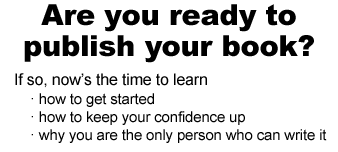
Copyright: / 123RF Stock Photo
As winter eases into spring, it’s traditional to clean a house thoroughly from top to bottom. For those who live in cold climates, it helps get rid of the winter blues. For everyone it is a time for decluttering, organizing, and maintaining your home for another year.
Whether you engage in this annual tradition or not, you must agree it can clear not just the cobwebs in your house, but lighten your mood, brighten your outlook, and boost your well-being.
But why stop at spring cleaning your home. As an author, this is a good time to spring clean your way to your writing goals.
Here are seven tips for getting started:
1. Start on the inside
What are your values and goals? Are you choosing activities and behavior in keeping with your values and moving you toward your writing goals?
How are you feeling physically and mentally? Listen to your body and mind. Pain,discomfort or troubling thoughts are signals of potential problems. Don’t ignore them. Examine them and if necessary get help from a doctor, coach, or other professional.
As a writer you can help relieve troubling thoughts by journaling about them. Some writers use these ideas and thoughts from the past to begin their memoirs. For additional help in unblocking your creativity, see The Artist’s Way
by Julia Cameron
2. Discard what no longer works for you
- Replace tattered thoughts. I’m referring to that self-talk about what you don’t want. It’s time to change to positive affirmations about what you do want.
- Remove stains of the past. They have no place in your present. Start with the “if-only-I-had-done-this” thoughts about events you cannot change. If you’ve always wanted to write a book, don’t dwell on how many years have passed, get started now.
- Eradicate those moldy thoughts. You know the ones I mean, the ones that hold you back. Perhaps no one in your family or anyone you know ever wrote a book, so you didn’t think you could either. Or maybe you always wanted to live in another place but your family made you believe that you couldn’t survive away from them. When you change these thoughts, you will change your circumstances.
3. Enlist support of family members, friends or colleagues who believe in you
Surround yourself with friends, family and colleagues who share your values. Combine your efforts and share your growth and celebrate your successes.
Negative Nellies and toxic people have no place in your life. They only celebrate when you fail.
4. Polish your strengths to a high shine
Use your strengths to move toward your writing goals and help others. Perhaps you are great at decorating, for example. Beautify your own space, then volunteer your services at a nonprofit organization or a senior citizen in your neighborhood who lives alone. Finally, write about your experiences in an article, ebook or book.
5. Make those unfinished tasks/repairs you’ve been postponing
You know what they are. For some it’s going to the doctor for an exam. For others it may be finishing school. Perhaps you promised yourself you were going to take better care of your feet, hair, hands. You may have thought of improving your eating habits. Now is a good time to make even one small change and use those experiences to help you have the energy and confidence to complete your writing.
6. Plant new seeds
Spring is a great time to do something new. If you’ve been thinking about writing a book but didn’t know how to start, sign up for a class or hire a coach. Even one small step forward, like my eCourse, Rockin’ Your Book, will put you on your way. Get started now.
7. Commit to maintaining your changes, improvements, and new growth
By committing to the changes you made and continuing to work toward your goal, you will ensure that you reach them. The time spent in spring cleaning your life to achieve your writing goals pays off.
=====
[feature_box_creator style=”1″ width=”” top_margin=”” bottom_margin=”” top_padding=”” right_padding=”5″ bottom_padding=”5″ left_padding=”” alignment=”left” bg_color=”#f9f58b” bg_color_end=”” border_color=”” border_weight=”” border_radius=”” border_style=”solid” font_shadow=”light”]

Article by Flora Brown
Flora Brown is an author, blogger, speaker, and book coach. She’s the creator of “Rockin’ Your Book” an eCourse delivered to your emailbox.
If you like this post, you can keep up with the latest information from Color Your Life Published by subscribing to updates at the top of this site. When you do, you’ll be able to download a free copy of the eBook, “It’s Time to Write Your Book.”
[/feature_box_creator]
Originally published on April 11, 2012. Updated on March 4, 2015.










